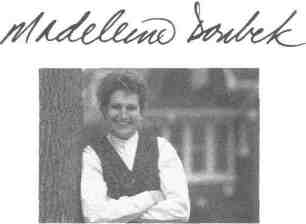 |
Home | Search | Browse | About IPO | Staff | Links |
 |
Home | Search | Browse | About IPO | Staff | Links |
|
A VIEW FROM THE SUBURBS

A black suburban Republican meets his 'homeboy Newt' by Madeleine Doubek 'The Democrats aren't addressing the issues that would help us.' They're too driven by entitlements. Jimmie Daniels isn't much different from his neighbors. He has lived with his wife and children in northwest suburban Hoffman Estates for 16 years. He works hard to keep his cleaning and property management businesses going in Wood Dale and Maywood. And he sounds like a typical suburban Republican. "We have to maintain the Republican control of the House," he says. But Daniels' skin color makes him stand out in the suburbs — and in Republican circles. At the same time, his political leanings make him anything but a typical black activist. In fact, it wasn't long after he met U.S. House Speaker Newt Gingrich in Washington, D.C., that the Rev. Jimmie Daniels agreed to step down as national president of Chicago-based Operation PUSH. The Rev. Jesse Jackson and other PUSH board members were disturbed, Daniels says, by his dialogue with Gingrich, the power broker they have chosen to demonize. "Why do they think we have no business talking to our own homeboy, Newt?" Daniels asked as he announced his PUSH departure. "Our problems do not lie with Newt Gingrich. He just happens to play a role that could enable him to make changes in our communities." Daniels has not settled for a back seat. He chairs a new organization he says is supported by about 50 small businesses: the National Council on African American and Minorities Business Development Inc. And Gingrich appears to be committed to addressing the group's economic development conference planned to coincide with this summer's Democratic National Convention in Chicago. To Daniels, it is a smart business move not to be beholden to one political party. "Minorities have always been on this Democratic bandwagon," he says. But the members of his group "are in business to make money and create jobs, so it just makes sense for them to be conservative." Daniels says, after years of fighting for a piece of the business from Democratic administrations in cities and counties and states, some of the members just now are getting the courage to work openly with Republicans. "The Democrats aren't addressing the issues that would help us," he says. "They're too social-driven and entitlement-driven and not economic-driven." Daniels says he has held that opinion for a long time. Yet he also is critical of Republican welfare reform efforts. It was GOP Congressman Jerry Weller of Morris who offered up an audience with Gingrich after hearing Daniels lambaste GOP talk of welfare reform at a Joliet church gathering. "What I feel emerged from it," Weller said after Daniels' first meeting with Gingrich in the speaker's office, "was a commitment to continue a dialogue to develop an agenda that offers economic opportunity for Americans of every color." That is exactly what Daniels wants. "We want to cut out the subsidized programs and use the money and use empowerment zones to build up depressed neighborhoods. Bring the dollars into the community. Don't bring in big contractors. Train the people in the neighborhood. Our main focus is to get people off welfare and into jobs and we feel very strongly that we need the Republicans to do that." Daniels says more minority business owners are coming around to his view "when they're properly shown the Democrats haven't done us no real favors. Maybe the Republicans haven't either, but we need to give them a chance." For their part, the GOP needs to try harder to recruit black Americans to their ranks. Daniels says he told Gingrich that in their meeting. "There are a lot of little Colin Powells and J.C. Wattses out here, and they need to reach out to them." He says the attitude he carried with him from the South is no different from the one held by many minorities — and, for that matter, no different from the one held by many majority whites struggling for success. "I can't do nothing about the color of my skin," he says. "But what I can do is make it a non-factor. People look for a good product and a good service. And if you can offer a good product and a good service and be competitive, you can do well. Just give us an equal opportunity." Madeleine Doubek is political editor for the Daily Herald, a suburban metro newspaper. She has covered politics since 1988. Illinois Issues April 1996 ¦ 45 |
|
Sam S. Manivong, Illinois Periodicals Online Coordinator |